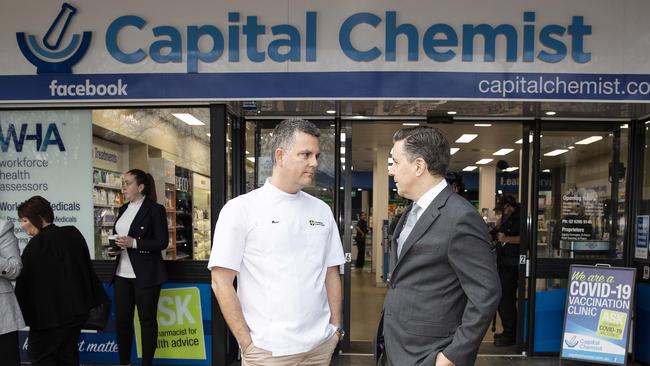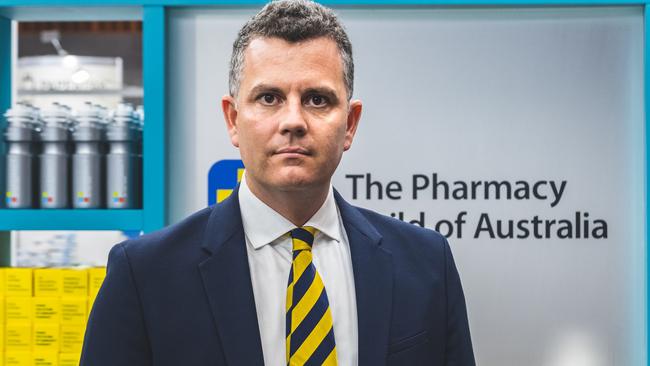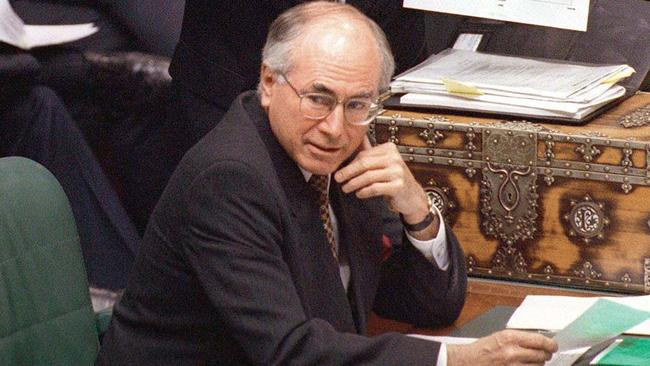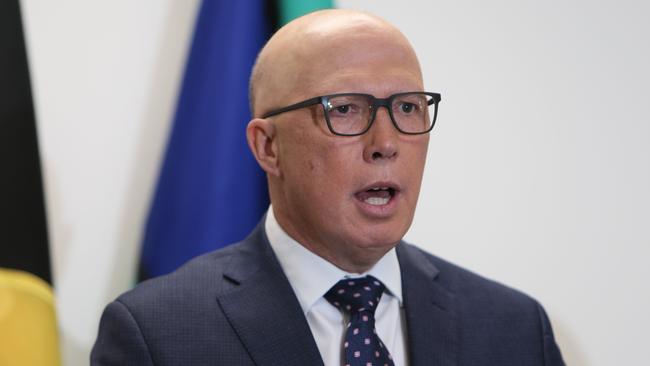Butler dispensing good policy but don’t bet against Pharmacy Guild
Two cheers for Mark Butler for proposing the 60-day dispensing change, but don’t hold your breath – the Pharmacy Guild is the country’s most powerful lobby group, writes James Campbell.
Opinion
Don't miss out on the headlines from Opinion. Followed categories will be added to My News.
From time to time Labor readers complain I am always ripping into the government without giving any credit to All The Good Things They are Doing.
There may be something to this charge, so this week I thought I’d square the ledger by writing about an announcement that literally had me punching the air.
On Wednesday, Health Minister Mark Butler revealed that, from September, we will be able to get 60 days’ worth of medicine filled at one go, meaning we’ll get two scripts for the price of one.
This change, following from the cut in January of the maximum co-payment from $42.50 to $30, means that, from September, medicine which a year ago would have cost $85 will henceforth cost $30.
This brings us into line with the UK, NZ, France and Canada and no doubt a bunch of other places Australians don’t care about.

In other words, what’s not to like?
Well, if you’re the Pharmacy Guild, quite a lot, which is why we were treated to the sight of its president Trent Twomey struggling to hold back tears at Parliament House.

Why Twomey was wearing his dispensing whites was a mystery, normally the Pharmacy Guildsters on Capital Hill are easy to spot from their yellow and blue striped ties.
And they’re up there a lot.
Many years ago when I was getting started as a Liberal staffer, I expressed ignorant surprise at how much deference the guild was given until an MP explained patiently that, without doubt, it was the most powerful lobby group in the country.
Certainly John Howard knew better than to pick a fight with it.

Here’s an opening of a story from 1997: “The Prime Minister, Mr John Howard, has assured the pharmacy sector he will deliver on a pre-election promise to effectively exempt them from national competition reforms, at least until 1999.”
Another from 2004: “The Prime Minister has ignored criticism by Woolworths that his government is protecting high medicine prices and called on NSW to drop legislation permitting more competition in the $9 billion medicines market.”
That year Howard actually tried to get Victoria to cap the number of pharmacies that friendly societies could own to no more than six, and to ban new entrants.
To get an idea of how successful the guild has been at killing reform, let’s go through the list of failures as laid on the website of its historic enemy and fellow rent-seeker, the Australian Medical Association.
In 1999, the Wilkinson review recommended getting rid of the restrictions on how many chemists one pharmacist can own as well as the controls on where one can be opened.
In 2005, the Productivity Commission noted “a failure to act on recommendations by a national independent review of pharmacy to relax ownership and other anti-competitive restrictions”.

In 2014, Tony Abbott’s National Committee of Audit Review found letting competitors enter the market “would provide greater access and choice for consumers and, over time, place greater downward pressure on pharmaceutical prices”.
It also suggested this might involve “non-pharmacists owning pharmacies and relaxing location rules allowing pharmacies to collocate in other retail outlets such as supermarkets”.
A year later the PC had another crack, finding the “restrictions on retail pharmacy location and ownership are clearly more about protecting the vested interests of incumbent pharmacists than about promoting consumers’ interests and maximising benefits for society as a whole”.
That same year the Harper Review into competition policy also recommended dropping the ownership and location rules.
Rolling on to 2017, the wild men and women of the PC went all out, saying we “should move away from community pharmacy as the vehicle for dispensing medicines to a model that anticipates automatic dispensing in a majority of locations, supervised by a suitably qualified person”.
They also had the cheek to point out the proliferation of quack medicine and confectionery at the front of the shop may not be consistent with the “evidence based clinical function at the back”.

Space doesn’t permit me to go into the PC’s 2021 attempt to shift the dial, so I’ll jump straight to 2023, when it found “there are now fewer pharmacies per head of population than when the regulations were introduced” and “four pharmacy operators control 73 per cent of the market” through franchising and the like”.
It recommended we should follow the lead of the UK and US, where pharmacies are co-located in supermarkets.
Given the above, I wouldn’t be holding my breath, not when you consider the 60-day dispensing change was actually first proposed by the Pharmaceutical Benefits Advisory Committee – and rejected by the previous government – five years ago!
Perhaps these tears are best understood as the tears of rage a toddler weeps when it is told it can’t have something, with the exonerating excuse in Twomey’s case that he’s probably never heard ‘no’ from a government before.
So two cheers for Mark Butler and more power to his arm getting on with the other work that needs to be done here.
And to note that Peter Dutton has already made clear he’ll be backing the pharmacists.
But as one of his MPs said, “they didn’t get where they are by making compromises with the government in the public interest”.
More Coverage
Originally published as Butler dispensing good policy but don’t bet against Pharmacy Guild





